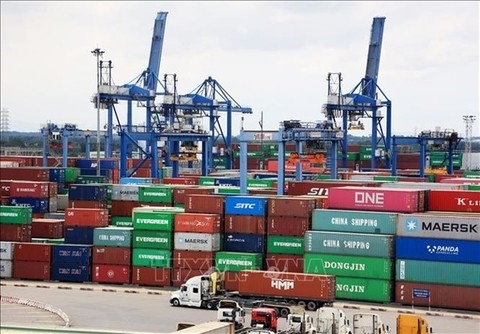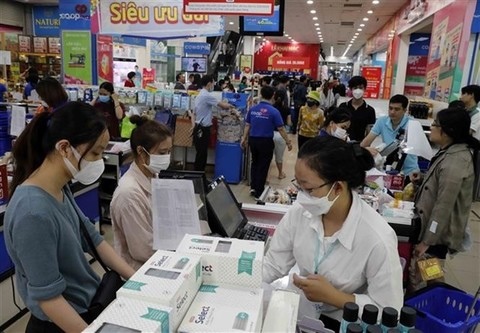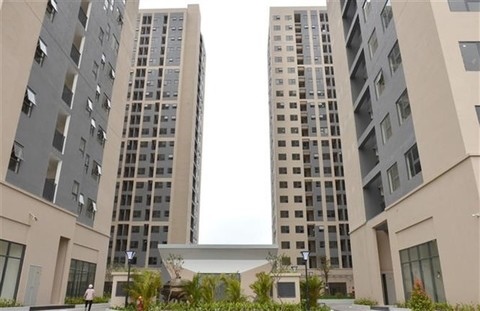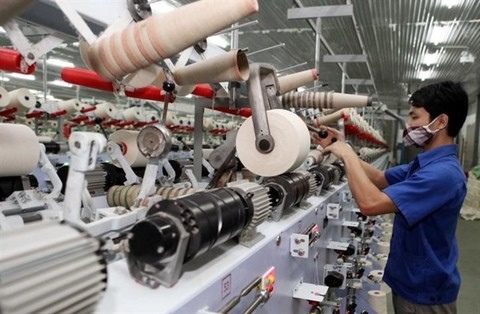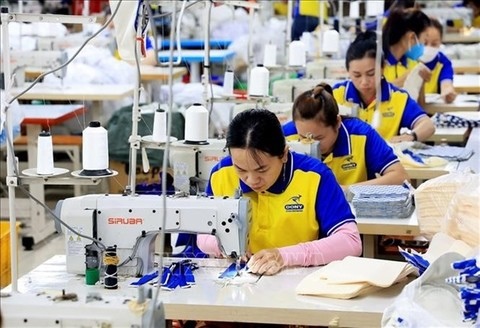Surge in foreign investment through M&As raises concern
Surge in foreign investment through M&As raises concern
Foreign investment pledged to Vietnam in the January-September period this year through capital contributions and stake acquisitions rocketed by 82.3% year-on-year, raising concerns over an economic crisis ten years ago making a comeback.

In the nine-month period, foreign investors conducted more than 6,500 transactions to contribute funds to and acquire shares in local firms, with a combined value of US$10.4 billion, according to the General Statistics Office.
Meanwhile, foreign direct investment (FDI) plunged in the nine-month period.
Vietnam had earlier been deemed to benefit from the U.S.-China trade war as many multinational corporations had planned to shift their production and business activities from China to Vietnam.
However, the fresh foreign investment approvals for new FDI projects nationwide have reached US$11 billion, while the additional capital registered for operational projects totals US$4.8 billion, down 22.3% and 13.6%, respectively, versus the same period last year.
Dinh Tuan Viet, a senior economic expert of the World Bank in Vietnam, said foreign investors can make direct investments in Vietnam by pouring capital into new projects or increasing capital for operational projects. Recent years have seen the introduction of a new investment model: indirect investment, including capital contributions and stake acquisitions.
According to Nguyen Minh Cuong, chief economist of the Asian Development Bank in Vietnam, the situation is similar to a previous occurrence following Vietnam’s participation in the World Trade Organization in 2007. At the time, foreign capital inflows into the country were high, while the country’s capital absorption capacity was limited, leading to the crash of the stock and real estate markets and multiple State-owned enterprises.
Vietnam later suffered an economic crisis, with inflation growing by over 20%. The country suffered heavy losses, with slow economic growth for the next decade.
Therefore, domestic enterprises must utilize opportunities ushered in by the U.S.-China trade war but must do the job in a selective manner, Cuong remarked.
Meanwhile, Viet noted that the Politburo has issued Resolution 50 on the improvement of the selection and supervision of foreign investors until 2035. Accordingly, the competent agencies at all levels will have a common process to select foreign investments.
In addition to the surge in foreign investment through merger and acquisition deals, the nine-month period witnessed an increase in investment by Chinese firms. Among 72 countries and territories obtaining investment certificates for their new projects in Vietnam, South Korea was the largest investor with US$2.1 billion, accounting for 19.1% of the total, followed by China with more than US$2 billion.
Nguyen Thi Tue Anh, deputy director of the Central Institute for Economic Management, claimed Vietnam was attractive to Chinese investors because of its favorable geographic position and cultural similarities. In addition, Vietnam’s import-export turnover was double its gross domestic product and it has participated in multiple new-generation free trade agreements.
The foreign capital inflows into the country in the January-September period remain high. The origin of the capital is not as important as its quality and the sectors into which it is poured, Anh added.
Assessing Vietnam’s foreign investment attraction, Jacques Morisset, chief economist of the World Bank in Vietnam, pointed out that Vietnam has historically been an attractive destination for foreign investors.
Many regional countries have issued preferential policies to attract investment away from China and increase their competitiveness compared with Vietnam. For example, Thailand has halved taxes for companies shifting their investment from China to Thailand, while Malaysia has also offered multiple tax incentives to attract multinational firms.
Vietnam also has preferential policies in place for sectors and localities, Anh said.


